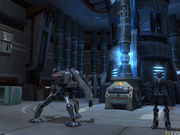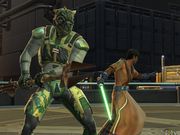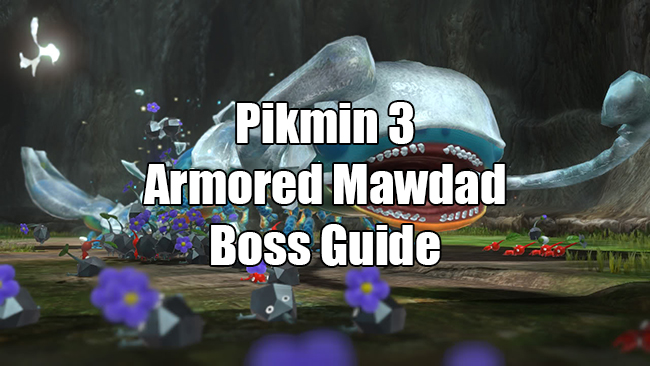



The Old Republic's hardline policy to push story to the foreground has left most people wondering whether a single-player narrative works in a massively multiplayer game, and even more wondering whether it should be in an MMO at all.
I've written before about just how much plot affects group quests – particularly the extent to which BioWare's narrative structure encourages solo-play. But for the TOR sceptics, let it be known the game's story-driven tendencies mean one of the biggest headaches in MMOs is being pushed out of the way to make room for the studio's grander designs: Grinding is being reduced for the sake of the plot, ladies and gentlemen.
The grinding issue has always been a bugbear for MMOs. Braid's Jonathan Blow has been one of the louder industry voices, having spoken out against the way the genre offers users illusory rewards for repetitive tasks. During part of his keynote speech at the Montreal International Games Summit a few years ago, he called out the grinding system for its continued use of "fake" compensation:
"I say 'fake rewards' because an MMO will give you gold, or experience points, or extra levels, or nice equipment or something, but we all know that as soon as you have enough of that to have advantage over the monsters you're trying to fight then it's going to make those monsters not very valuable to fight," he said.
"Now you need to fight stronger monsters that exactly match your new power. The rewards are actually illusionary, and this creates what designers and players call the treadmill or the grind. The rewards are a way of lying to the player so that they feel good and keep playing our game when in fact nothing real has changed."
But the success of the genre depends on keeping players engaged over months then years. For better or for worse, it's the grind that makes this happen. The length of a game can be dramatically increased just by layering on tasks that force users to repeat the same actions, time and time again.

While BioWare hasn't necessary perfected the delicate balance between grinding and not grinding, it's masked the problems as thoroughly as you could hope an MMO would.
What this means in terms of content is that BioWare is as much influenced by its older material, from KOTOR through to Mass Effect, as it is by the likes of any MMO. The result is a Massively game where quests function as subplots of the main story: where the aim isn't necessarily to level skills, but rather to shape your character.
These plots range from a storyline about splitting up Jedis in love; the question of what to do with a tribal alien slowly developing the force; a Hollyoaks-worthy plot to reunite a Twi'lek girl who ran away from her husband to become a dancer; and a narrative about the ethics of evicting kids living off a city's water supply.
So while quests of the "rescue 10 Padawan" variety exist, they are fewer and farther between. Generally speaking the "Kill 10 rats" formula that has populated most MMOs has been downgraded to Bonus Quests which get added onto other missions as an optional secondary objective.
A quest to harvest material required to build a lightsaber, for example, has you move from one point of an underground cave to another, in an area littered with small camps of enemies. While you have the opportunity to grind here, killing 50 enemies simply functions as a take-it-or-leave-it bonus rather than an integral aspect of levelling in the game.
Grinding proves to be even more insignificant to TOR's approach to crafting. Where older MMOs would have you harvesting material first-hand in order to level up your skill in your profession, crafting in The Old Republic operates via a cooldown mechanic. You send your companion off-screen to acquire items for you, collect the items when they return, and then repeat. Your subordinates do the hard work so that you don't have to.
Whether or not it will be too difficult to maintain this kind of quest content compared to the old faithful tactic of relying on the grind for levelling is something left to be seen. The debate over whether TOR is too influence by single-player traditions is still relevant as always, but its tackling of the grind begs the question: should MMO developers continue ignoring single-player-styled content if it helps the genre to evolve?



